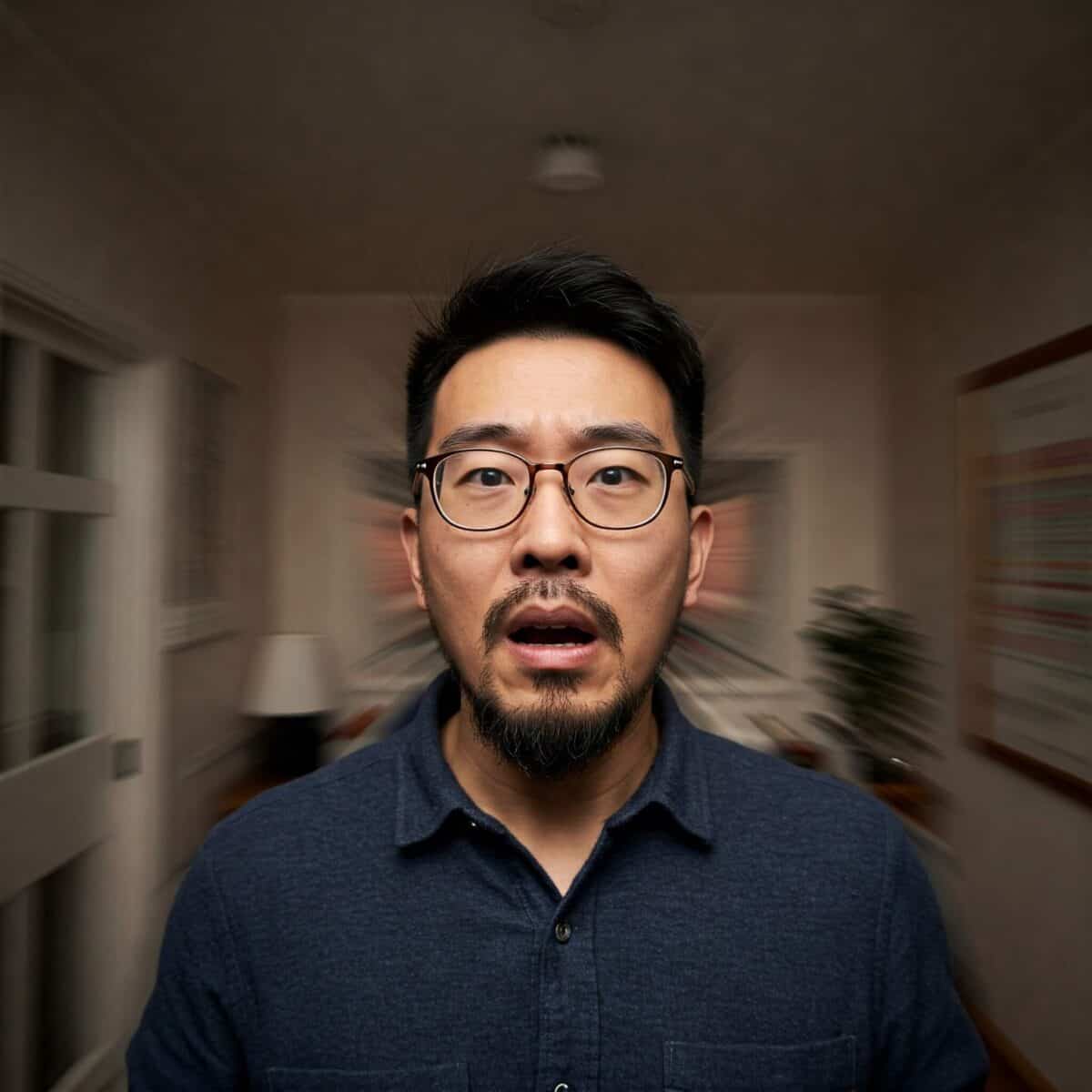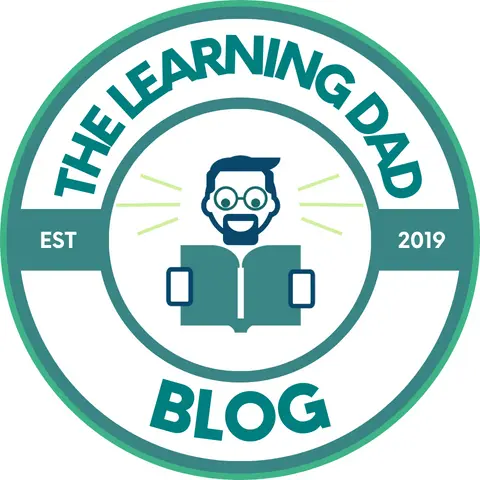Have you ever heard of vestibular neuritis? Me neither. I never knew it existed until I was diagnosed with it in February 2023.
Disclaimer: This blog post shares my personal experience and should not be considered medical advice. Always consult with a healthcare professional for diagnosis and treatment.

What Is Vestibular Neuritis?
It’s inflammation of the inner ear nerves, often due to a viral infection like coronavirus or influenza. Symptoms include vertigo, dizziness, balance issues, and nausea. My doctor also calls it “viral vertigo.”
I was back and forth on whether I should write this or not. I’m trying to forget my experience with vestibular neuritis, as it was one of the hardest times in my life. Reliving it could be painful.
But I’m writing this for you, the person who might have just been diagnosed, who feels lost and scared. Because recovery from vestibular neuritis is a marathon. Days stretch into months, and months feel like an eternity. You might doubt you’ll ever enjoy life again.
I’m here to tell you: You will recover. You will get your life back. Just hang on. I desperately wish someone had told me that two years ago. This condition is rare, and I felt profoundly alone, even misunderstood. I didn’t know where to turn for even a glimmer of hope. This article is my attempt to offer that hope, drawn from the fragmented memories I am willing to revisit. Please pray for me as I try to piece this together.
The Beginning
It’s hard to pinpoint the exact moment it all started. It might have been that afternoon, while washing dishes, when the floor suddenly felt like it was shaking. I thought it was an earthquake, but the hanging lights were still. Then, it happened again – that unsettling feeling of the floor moving beneath me. I felt like I was walking on a trampoline or a water bed. “I’m just tired,” I told myself, hoping a nap would fix things.
It didn’t. That two-hour nap made me feel worse, and it marked the beginning of a very long and difficult journey.
A Symphony of Symptoms
The vestibular nerve, located in our inner ear, sends crucial information about balance and spatial orientation to our brain. When this nerve becomes inflamed, it disrupts this communication, causing a cascade of symptoms.
I encountered a range of sensations, yet I’m uncertain if they were all directly linked to the viral vertigo. I’ll categorize them according to what I believe to be the primary symptoms and their likely related effects.
Primary Symptoms (Likely directly from vestibular neuritis)
Vertigo
This wasn’t just dizziness; it was the distinct sensation of my surroundings moving. Not a chaotic spin, but rather a subtle, disconcerting motion—walls appear to close in or occasionally seem to sway and dance. It was a genuinely scary feeling.
Dizziness
This wasn’t the kind that makes you want to vomit. It was more like being lightheaded or tipsy. Bright lights, clutter, and moving objects seemed to trigger it. This made places like supermarkets, churches, and shopping malls incredibly difficult. Even scrolling on my phone could trigger dizzy spells.
Imbalance
I could walk in a straight line, but something felt off. The “trampoline” feeling is the best way I can describe it. It’s similar to that falling sensation you sometimes get in your sleep, but while awake. This feeling was worse in dark or enclosed spaces; I felt much more stable outdoors.
Migraines
I experienced recurring headaches and significant eye strain during this period.
Difficulty Processing Information
Reading, writing, and looking at screens (text or moving pictures) became incredibly difficult. It caused eye pain and a strange sensation in my brain.
Weird vision
It might have been my imagination, but I sometimes felt my eyes moving on their own—glancing up or down for a moment. There were also moments of brief darkness, like a flicker of a light or a bird quickly passing by.
Secondary Symptoms (Likely related effects)
Lack of Energy
I could only function for about ten minutes a day, at most. Anything beyond that was a struggle. I spent most of my days in bed, staring at the ceiling. The medication, betahistine (taken twice daily), likely contributed to this lethargy.
Anxiety Disorder
My doctor initially said vestibular neuritis might last one to three months. When I reached the four-month mark with no improvement, panic set in. I started to question the diagnosis: “Maybe I was misdiagnosed.”
I sought second and third opinions from other ENTs, who both confirmed that my ears appeared normal. But I felt anything but normal. This escalated my anxiety, prompting me to consult a variety of specialists: an ophthalmologist (who diagnosed me with ocular hypertension—an issue unrelated to my vertigo); a neurologist; a cardiologist; and even a dentist (to eliminate the possibility of TMJ). Thankfully, all tests came back normal except for the eye issue.
The anxiety was overwhelming. I felt the need to see a doctor every week, desperate for answers. I even tried chiropractic treatment, thinking it might be a spinal problem.
Depression
Seven months in, and I felt utterly defeated. Epley maneuvers, vestibular exercises, chiropractic treatments – nothing seemed to work. This is when I truly understood the meaning of “living in a cruel world.” Everything felt dull, hopeless, and meaningless. I was at the end of my rope.
The Road To Recovery
Just as the onset was gradual, so was the recovery. I can’t pinpoint a specific turning point, but I estimate it was somewhere between the 10th and 12th months. A pivotal change occurred when I made the deliberate choice to surrender my circumstances to God and prioritize living my best life, regardless of my condition.
A key step was that I had a final consultation with my original ENT to confirm that it was indeed vestibular neuritis and not something more serious. He provided a detailed explanation, confirming it was an inner ear problem and emphasizing that there was no quick fix. We could only manage the symptoms and allow time for healing. I chose to cling to his words, regardless of my doubts and fears.
I know you might be here searching for a silver bullet, and I’m sorry to disappoint you. I can’t offer a miracle cure, only my empathy and my story. But these are the practical changes that I believe significantly helped me on my path to recovery:
Exercise
Even though I felt utterly drained, I forced myself to start exercising. I began with 10-minute walks, gradually increasing to 20 minutes. Later, I incorporated lightweight training, following the push-pull-legs workout program from Darebee.
Massage and Stretching
I read that tight neck muscles could contribute to migraines, vertigo, dizziness, and vision problems. So, I started regular stretching and massage focused on that area. You can read more about it here.
Supplements
I started taking supplements, including vitamin A, B-complex, and collagen, aiming to support overall nerve health and tissue repair.
[It’s important to note here that while supplements can be helpful, they should not replace medical advice.]
Travel
This may not be ideal for everyone, but I decided to take my family on a trip to Osaka, even though I was still experiencing symptoms. I was powering through it the entire time, but the joy of spending time with my family was incredibly restorative.
Community
I cannot overstate the importance of having a strong support system. My friends and family listened to my frustrations, offered unwavering encouragement, and prayed with me. They were my lifeline during this incredibly difficult time.
Bottom Line
Vestibular neuritis is a difficult condition caused by a virus affecting the inner ear, leading to a range of debilitating symptoms. Although there is currently no direct cure to reverse nerve damage, treatment primarily aims to manage symptoms and assist the brain in adapting to the imbalance. The good news is that most people recover fully, and recurrences are rare because they usually develop immunity to the specific virus. Remember, you are not alone, and recovery is possible. Hold onto hope, and don’t be afraid to seek support.
For more information on vestibular disorders, visit Vestibular Disorders Association (VeDA).
Have you experienced vestibular neuritis? Share your story in the comments below.
